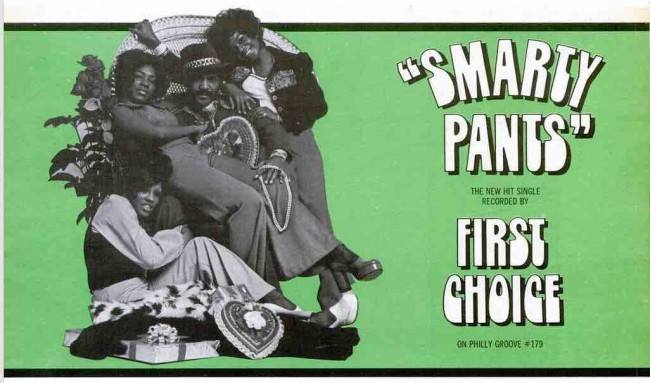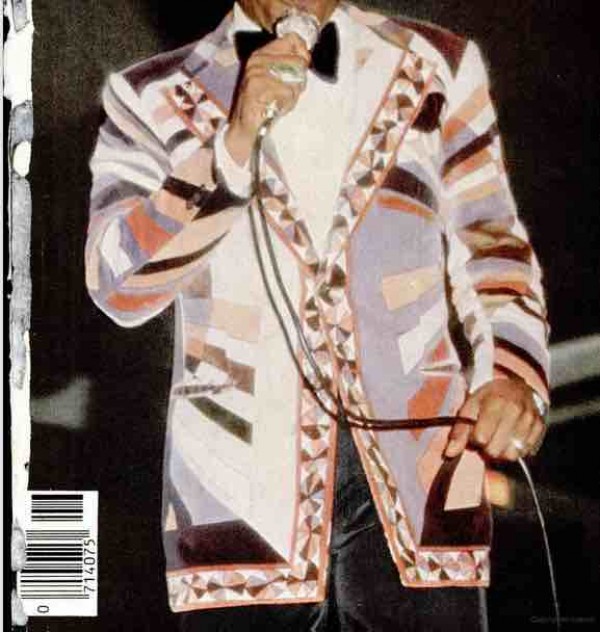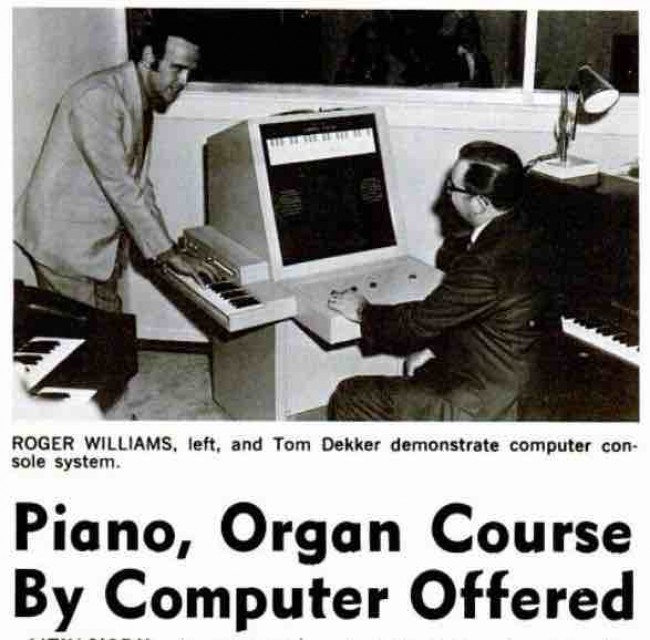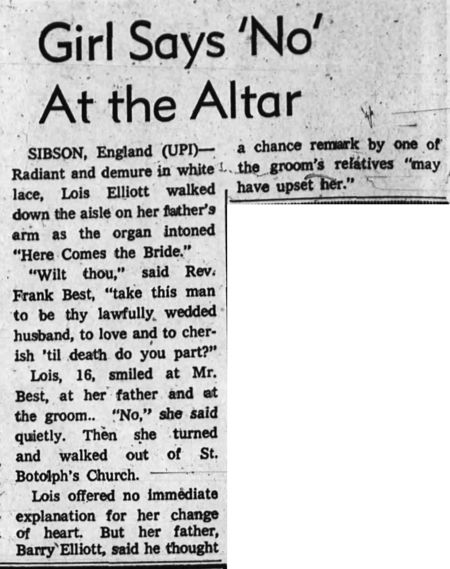1970s
Mystery Illustration 27

Which regional magazine of the fifty states decided this would be a good way to illustrate the pleasures of summer?
The answer is here.
Posted By: Paul - Thu Aug 11, 2016 -
Comments (7)
Category: Art, Magazines, Regionalism, Sex Symbols, Junk Food, 1970s
Smarty Pants

"They call me smarty pants!"
Wikipedia entry.
Posted By: Paul - Sat Jul 23, 2016 -
Comments (3)
Category: Fashion, Music, 1970s
The Black Godfather
FINALLY, a figure who can soothe these divisive times!
Posted By: Paul - Wed Jul 20, 2016 -
Comments (3)
Category: Crime, Movies, Racism, Stereotypes and Cliches, 1970s
Mystery Illustration 25

Which male vocalist rocked this splendiferous jacket in 1978?
The answer is here.
Posted By: Paul - Thu Jul 14, 2016 -
Comments (7)
Category: Excess, Overkill, Hyperbole and Too Much Is Not Enough, Fashion, 1970s
Pig Precinct
In 1972, the City Council of Ames, Iowa reprecincted the city in order to comply with new legislative district lines drawn by the Iowa Supreme Court. In doing so, they inadvertently created one precinct that had no residents in it — except for pigs, because the precinct was entirely occupied by the 15-acre Experimental Animal Disease Laboratory.Ames has redistricted since 1972, so I'm assuming the pig precinct no longer exists.

Arizona Republic - Nov 4, 1972

The Pick And Axe (Bessemer, Michigan) - Aug 8, 1974
Posted By: Alex - Tue Jul 12, 2016 -
Comments (4)
Category: Animals, Government, 1970s
So Long, Pal
Disco-era DUI.
Posted By: Paul - Tue Jul 12, 2016 -
Comments (2)
Category: Motor Vehicles, PSA’s, 1970s, Alcohol
Rock Hudson Sings Rod McKuen
Full playlist here.
Posted By: Paul - Sat Jul 02, 2016 -
Comments (0)
Category: Ineptness, Crudity, Talentlessness, Kitsch, and Bad Art, Movies, 1970s, Cacophony, Dissonance, White Noise and Other Sonic Assaults
Williams-Dekker Piano-Teaching Computer

This oddball hybrid technology seems to have vanished from history, as I can learn little about its fate after its 1970 launch.
Original article here.
Posted By: Paul - Wed Jun 29, 2016 -
Comments (2)
Category: Music, Technology, 1970s
Said no at altar
I guess that's why it's posed as a question. You don't have to say "I do."Anyway, if you're 16, the correct response to a marriage request is 'No.' Unfortunately, it seems that Lois did end up getting married a week later, despite her initial reluctance.

The Ottawa Journal - May 1, 1971
SIBSON, England (UPI) —Radiant and demure in white lace, Lois Elliott walked down the aisle on her father's arm as the organ intoned "Here Comes the Bride."
"Wilt thou," said Rev. Frank Best, "take this man to be thy lawfully wedded husband, to love and to cherish 'til death do you part?"
Lois, 16, smiled at Mr. Best, at her father and at the groom. "No," she said quietly. Then she turned and walked out of St. Botolph's Church.
Lois offered no immediate explanation for her change of heart. But her father, Barry Elliott, said he thought a chance remark by one of the groom's relatives "may have upset her."
Posted By: Alex - Mon Jun 27, 2016 -
Comments (3)
Category: 1970s, Weddings
Late mail, postage due
1974: Roy Baker of Guthrie, Oklahoma received a Christmas card two years after it had been mailed. Because the price of a stamp had gone up between the time it was mailed and the time it was delivered, the post office decided there was postage due.Baker wisely decided it was useless to argue with the post office and paid them the two cents they wanted.

Detroit Free Press - Apr 7, 1974
Posted By: Alex - Tue Jun 21, 2016 -
Comments (2)
Category: 1970s, Postal Services

| Who We Are |
|---|
| Alex Boese Alex is the creator and curator of the Museum of Hoaxes. He's also the author of various weird, non-fiction, science-themed books such as Elephants on Acid and Psychedelic Apes. Paul Di Filippo Paul has been paid to put weird ideas into fictional form for over thirty years, in his career as a noted science fiction writer. He has recently begun blogging on many curious topics with three fellow writers at The Inferior 4+1. Contact Us |




